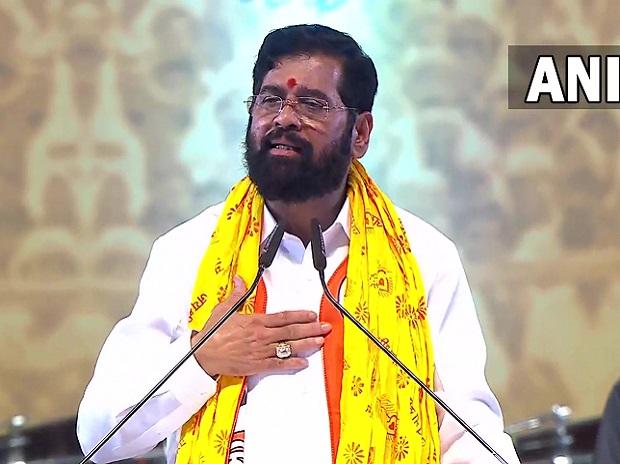WHAT IS LEGISLATIVE COUNCIL

Legislative Council
India follows a bicameral system at both the centre and state level. Under this system, the state's legislature is divided into two parts - Legislative Assembly or Vidhan Sabha and Legislative Council or Vidhan Parishad. Members of the Legislative Assembly are directly elected by the people through assembly elections. Vidhan Parishad or Legislative Council is a permanent body, which can be formed or abolished when the Legislative Assembly passes a special resolution.
In other words, the Legislative Council is the upper house of the state. Its institution is outlined in Article 169 of the Constitution of India. A member of a legislative council is referred to as an MLC.
Do all states have Legislative Councils?
No. The Constitution of India does not mandate states to form a Legislative Council.
How many legislative councils are there in India?
As of January 2020, six out of 28 states have a legislative council. The states with bicameral legislature include Andhra Pradesh, Bihar, Karnataka, Maharashtra, Telangana and Uttar Pradesh. These states have both the Legislative Council and Legislative Assembly.
What is the difference between the Legislative Assembly and the Legislative Council?
The term of the Legislative Assembly is five years unless it is dissolved earlier on the request of the chief minister. The tenure of the members of the council is six years, and a third of the members of the House retire after every two years.
Legislative Assembly is the lower house, much like the Lok Sabha of the Parliament. Legislative Council is the upper house in the state and like the Rajya Sabha, it is a permanent House.
How is the Legislative Council created?
The members of the Council are either nominated by the Governor of the state or are indirectly elected.
Here's the math: One-third of the members of this House are elected by the Legislative Assembly. One-third are elected by the local bodies like a municipality or other local authorities. One-twelfth of the members are elected by graduates. One-twelfth of the members are elected by teachers. About one-sixth of the members are nominated by the Governor. The legislative Council elects its Chairman, who plays the role of presiding officer and Deputy Chairman from amongst its members.
Eligibility criteria: Indian citizen who is at least 30 years of age; a person cannot simultaneously be a Member of Parliament and State legislature.
What is the role of the Legislative Council?
The Constitution of India gives limited power to the Legislative Council. It cannot make or break a government. It cannot say ‘no’ to Finance Bills. However, there are some perks: The Council has its Chairman and Deputy Chairman who enjoy the status of Cabinet Ministers in the state.
It is considered important for two reasons: a) it can ensure individuals who might not be cut out for the elections are able to contribute to the legislative process (like artists, scientists, etc). b) It can keep an eye on hasty decisions taken by the Legislative Assembly.
Can Legislative Council be dissolved?
While Legislative Council is a permanent House like the Rajya Sabha, it can be dissolved. Under Article 169 of the Indian constitution, Parliament may create or abolish the Council in a state if the Legislative Assembly of that state passes a resolution to that effect by a special majority. Parliament abolished the Vidhan Parishad in Andhra Pradesh in 1985, but in March 2007, it was reinstated.
Criticisms
The Legislative Councils have been criticised for being unnecessary and unrepresentative of the people. They are considered a burden on the state budget and cause delays in passing legislation.
LEGISLATIVE COUNCIL NEWS
-
 Maha: Rebellion, a common thread running through Cong's Thorats, Tambes
Maha: Rebellion, a common thread running through Cong's Thorats, Tambes
The surprise move of Congress MLC Sudhir Tambe, a close relative of staunch Congressman and former Maharashtra minister Balasaheb ...| January 13, 2023, Friday -
 Uttar Pradesh: BJP announces names of candidates for MLC elections
Uttar Pradesh: BJP announces names of candidates for MLC elections
The Bharatiya Janta Party (BJP) National President JP Nadda gave his approval for the names of candidates to contest from five ...| January 10, 2023, Tuesday -
 Maharashtra opposition leader seeks resignation of ministers Sattar, Samant
Maharashtra opposition leader seeks resignation of ministers Sattar, Samant
Leader of Opposition in the Maharashtra Legislative Council Ambadas Danve on Tuesday demanded the resignation of state ministers ...| December 27, 2022, Tuesday -
 Maharashtra govt issues notice to wardens of 28 hostels for poor facilities
Maharashtra govt issues notice to wardens of 28 hostels for poor facilities
Wardens of 28 government hostels have been served show cause notices and will face inquiries over various complaints about poor ...| December 23, 2022, Friday -
 Maha council adjourned briefly as oppn targets Shinde over Nagpur land case
Maha council adjourned briefly as oppn targets Shinde over Nagpur land case
Maharashtra Legislative Council was adjourned briefly on Wednesday after uproar over a Nagpur land allotment decision by Chief ...| December 21, 2022, Wednesday -
 40 Congress lawmakers in Himachal to nominate legislative party leader
40 Congress lawmakers in Himachal to nominate legislative party leader
Pratibha Singh, Sukhwinder Sukhu and Mukesh Agnihotri are considered key frontrunners for the chief minister's post| December 09, 2022, Friday -
 Karnataka Legislative Council passes contentious 'anti conversion bill'
Karnataka Legislative Council passes contentious 'anti conversion bill'
Karnataka Legislative Council on Thursday passed the contentious "anti conversion bill", amid objections from the opposition ...| September 15, 2022, Thursday -
 Maharashtra Governor allows CM Shinde to withdraw MVA's 12 MLC nominee list
Maharashtra Governor allows CM Shinde to withdraw MVA's 12 MLC nominee list
Maharashtra Governor Bhagat Singh Koshyari allowed to withdraw the list consisting of 12 names for the nomination to the ...| September 05, 2022, Monday -
 Former Maharashtra MLC Prabhakar Sant passes away at 90 in Thane's Kalyan
Former Maharashtra MLC Prabhakar Sant passes away at 90 in Thane's Kalyan
Former member of the Maharashtra Legislative Council Prabhakar Sant has died due to old age related ailments, family sources said ...| August 30, 2022, Tuesday -
 Maha Council clears bills on direct election of sarpanches, council heads
Maha Council clears bills on direct election of sarpanches, council heads
The Maharashtra Legislative Council on Tuesday passed two bills that will enable election of gram panchayat sarpanches, ...| August 24, 2022, Wednesday
